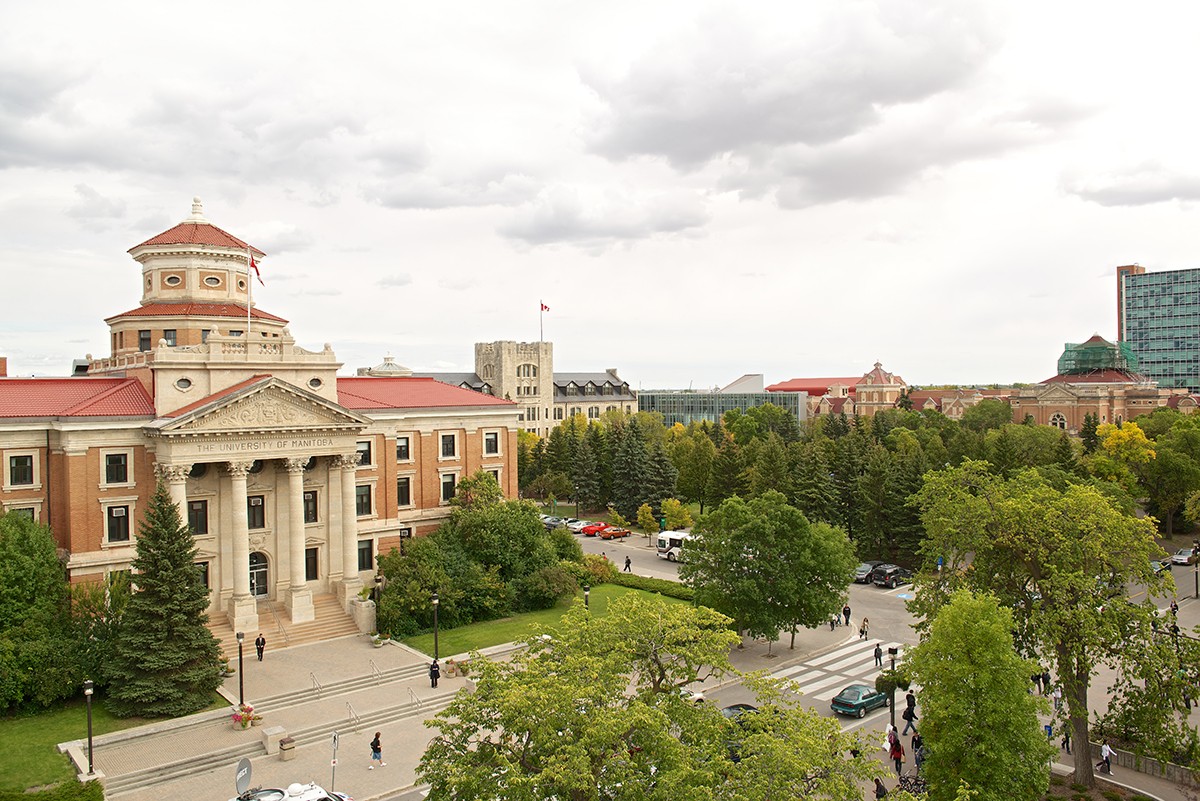
Op-Ed: We need to keep investing in post-secondary institutions
The following in an Op-ed written by President David Barnard. It was originally published in the Winnipeg Free Press on April 29, 2015.
Imagine an opportunity that could lead to curing disease, boosting the economy, fostering innovation, offering training to future leaders and employing more Manitobans. That opportunity is within our grasp as the province brings down its budget Thursday.
Two weeks ago, former federal industry minister Allan Rock spoke to the Economic Club in Toronto, during which he insisted that support for Canadian innovation is essential for strengthening our nation’s economy. He urged provincial and federal governments to better support post-secondary institutions for the ultimate benefit of all Canadians.
Rock’s comments were not made in isolation. Economist and author Todd Hirsch recently advocated support for universities since a strong university can be an “ace card” with the potential to enhance a region’s international reputation, spurring business and tourism.
The message is clear: We need to keep investing in post-secondary institutions because they drive our economy.
With this in mind, it is possible to think of universities as Manitoba’s ace card. To continue sustained growth, the province should look to its post-secondary institutions to generate the intellectual and economic capital needed for us to remain a true contender as we move further into the 21st century.
As educators of our workforce, universities are preparing the next generation of knowledge workers and leaders. University graduates are essential components of innovation in this country, applying their expertise in an incredibly diverse range of areas, from the development of improved processing methods for foodstuffs that make it to our tables to treatment or cures for diseases such as Ebola and Alzheimer’s, to work in the high Arctic, measuring the rate at which climate is dramatically changing our world.
It’s also a fact that while at university, students have opportunities for international education and cooperation that can help increase global awareness and personal growth. Students are working in impoverished parts of the globe to provide clean drinking water, and digging archaeological sites to trace the origins of civilization itself. Then, when they return to Manitoba, their experiences translate into ideas and new approaches through applications that can benefit people throughout the province, such as teaching new ways to think about globalization and advocating for human rights issues at home as well as abroad.
The value of a university degree remains strong; according to federal government estimates, 70 per cent of new jobs in the coming decade will require a post-secondary degree. In 2010 the average salary for university graduates working full-time was about $80,000.
The University of Manitoba is one of Manitoba’s top 25 employers, employing more than 8,700 people, and is responsible for the indirect employment of thousands more people in Winnipeg.
The fastest growing segment of the population in Manitoba is that of young indigenous people. As home to the largest indigenous student population in the country, the University of Manitoba is honoured to play an important role in educating young adults who are poised to become some of the leaders of tomorrow, and whose contributions will be vital to the health and well-being of our province.
Universities put Manitoba on the world map — bringing rural and international students to Winnipeg and attracting hundreds of thousands of out-of-town visitors each year. Out-of-town students of the University of Manitoba alone contribute more than $130 million in spending, and visitors here contribute more than $102 million to our provincial economy.
As community partners, universities have a responsibility to support our citizens and economy. Because of this, we work in conjunction with people throughout the greater community. Faculty and staff are involved in outreach projects around the world and here at home, including more than 200 projects U of M faculty and staff are involved with in the inner city alone, from weekend basketball in the summer to bringing science to eager and inquisitive youths at the Inner City Science Centre.
On Thursday, the Manitoba government has an opportunity to announce its intent to enhance its investment in universities. From dedicated staff to technological innovation, universities are a source of dynamism and a resource for moving our province into the future. As engines to drive the economy and as incubators of the next generation of leaders and visionaries, universities are the province’s “ace card” that can be played as Manitoba moves to take its place on the world stage.






